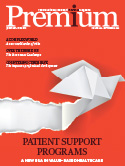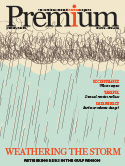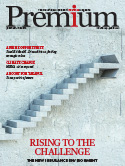Hannover Re predicts price hike in P/C sector
Hannover Re expects to see significant price increases spanning the various lines of property and casualty reinsurance in the treaty renewals as at 1 January 2021, owing to the strains incurred by primary insurers and reinsurers in connection with the Covid-19 pandemic, a further drop in interest rate levels and the large losses recorded over the past three years.
“Our sympathies go out to everyone who has lost family or friends or been impacted by the virus in any other way,” Jean-Jacques Henchoz, chief executive officer of Hannover Re, said. “We stand shoulder-to-shoulder with our customers and emphasise sustained, partnership-based relationships. Our business model and our capital resources are geared to managing extreme scenarios. Low interest rates are here to stay for a long time. This necessitates considerable pricing discipline, because technical profitability will have to do even more to offset declines in investment income. With this in mind, price increases on both the insurance and reinsurance side are absolutely essential in January and beyond.”
Along with generally stronger demand for high-quality reinsurance protection, primary insurers are increasingly seeking tailor-made solutions offering solvency relief. This is where first and foremost reinsurers with a particularly large risk-carrying capacity and above-average ratings have a pivotal role to play.
In the various rounds of renewals held during 2020 Hannover Re secured improved conditions and price increases in some areas. Particularly for treaties that had suffered losses, price increases mostly running into double-digit percentages were obtained. Owing to the low level of interest rates, however, these are not always technically adequate and further price increases are therefore needed.
The effects of the Covid-19 pandemic on worldwide reinsurance markets vary in scale from region to region. The largest losses to date are anticipated from covers in the areas of business interruption, trade credit and event cancellation, although the spectrum of possible scenarios remains too broad for concrete forecasts. A further consideration is that many government assistance programmes are limited in duration. Against this backdrop, the level of risk awareness among primary insurers and hence the importance attached to high-quality risk protection have risen sharply over the past few months.
“From our perspective, Covid-19 is a market-changing event that can be compared with the terrorist attacks of 11 September 2001 or hurricanes Katrina, Rita and Wilma in 2005,” Sven Althoff, a member of Hannover Re’s Executive Board responsible for property and casualty reinsurance, commented. “The true scale of the losses caused by the pandemic will only become clear over the long term. We see the Covid-19 pandemic as a catalyst for fundamental adjustments to prices and conditions at insurers and reinsurers alike. Just how these manifest themselves will, however, vary by region and line of business.”





































